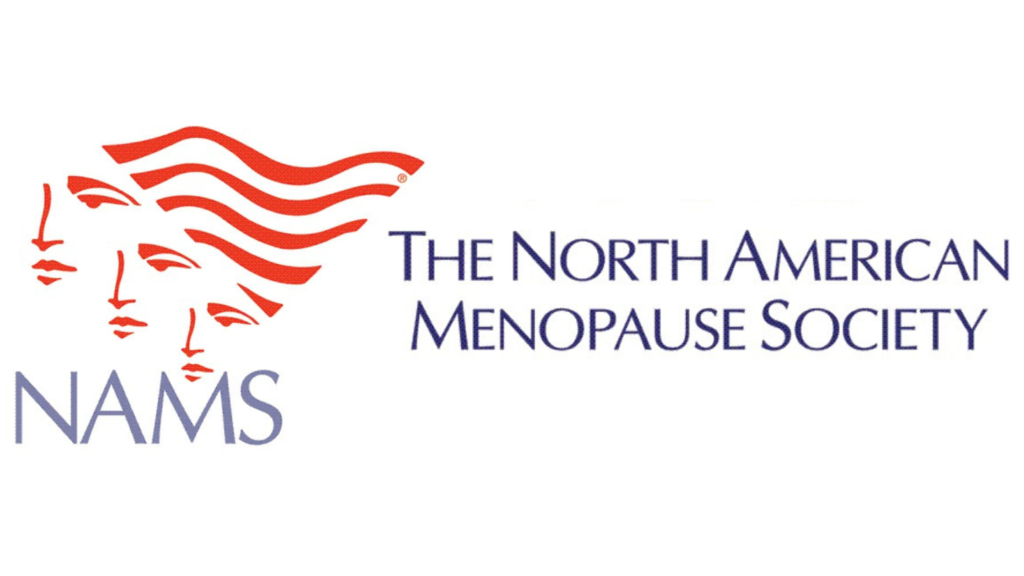


Our General Menopause Consult service is designed to provide comprehensive and compassionate care for women navigating this significant life stage. Led by Dr. Bisi Aluko, a renowned expert in women’s vaginal health, our clinic is committed to empowering women with the knowledge and support they need to thrive during menopause and beyond.
At Dr. Bisi Vaginal Health and Rejuvenation Clinic, our approach to General Menopause Consultations centers around personalized care and evidence-based practices. We recognize that every woman’s menopause journey is different, and we take the time to understand your individual needs, concerns, and goals. Our team of experienced healthcare professionals is dedicated to addressing all aspects of menopause, from managing bothersome symptoms to promoting overall well-being.

Contact Form Disclaimer:
Please avoid including personal medical information in your contact form submissions as this method is not secure for transmitting sensitive data. For private medical inquiries, we recommend contacting us directly by telephone or scheduling a consultation.
Explore Further: Click on the Questions Below to Learn More About Menopause.
Menopause is a normal, natural event—defined as the final menstrual period and usually confirmed when a woman has missed her periods for 12 consecutive months (in the absence of other obvious causes). Menopause is associated with reduced functioning of the ovaries due to aging, resulting in lower levels of estrogen and other hormones. It marks the permanent end of fertility. Menopause occurs, on average, at age 51. It occurs most often between ages 45 and 55. The term “premenopause” refers to the phase of life that precedes menopause. For many women, it is an optimal time to reassess their health.
Induced menopause refers to menstrual periods which stop after surgical removal of the ovaries, chemotherapy or radiation damage to the ovaries, or from the use of other medications to intentionally induce menopause as part of the treatment of certain diseases. Women who have induced menopause experience the hot flashes, vaginal dryness, trouble sleeping and other symptoms of menopause, but without the gradual onset of a natural menopause. Seek out a certified menopause practitioner for help finding the many options available in regard to induced menopause.
Postmenopause includes all the years beyond menopause.
Each woman’s menopause experience is different. Many women who undergo natural menopause report no physical changes at all during the perimenopausal years except irregular menstrual periods that eventually stop when they reach menopause. Other changes may include hot flashes, difficulty sleeping, memory problems, mood disturbances, vaginal dryness, and weight gain. Not all these changes are hormone-related, and some, such as hot flashes and memory problems, tend to resolve after menopause. Maintaining a healthy lifestyle during this time of transition is essential for your health and can even prevent or blunt some of these changes.
Some women report sleep disturbances (insomnia) around the time of menopause, and women and their healthcare providers sometimes attribute sleep disturbances to menopause symptoms. However, there are many reasons for sleep disturbances besides menopausal night sweats (simply, hot flashes at night). Your sleep disturbances may be caused by factors that affect many women beginning at midlife, such as sleep-disordered breathing (known as sleep apnea), restless legs syndrome, stress, anxiety, depression, painful chronic illnesses, and even some medications. Any treatment should first focus on improving your sleep routine—use regular hours to sleep each night, avoid getting too warm while sleeping, avoid stimulants such as caffeine and dark chocolate. When lifestyle changes fail to alleviate sleep disturbances, your clinician may want to refer you to a sleep center to rule out sleep-related disorders before initiating prescription treatment. If your sleep disturbance is related solely to hot flashes, hormone therapy is likely to help.
Memory and other cognitive abilities change throughout life. Difficulty concentrating and remembering are common complaints during perimenopause and the years right after menopause. Some data imply that even though there is a trend for memory to be worse during the menopause transition, memory after the transition is as good as it was before. Memory problems may be more related to normal cognitive aging, mood, and other factors than to menopause or the menopause transition. Maintaining an extensive social network, remaining physically and mentally active, consuming a healthy diet, not smoking, and consuming alcohol in moderation may all help prevent memory loss. Atherosclerosis (hardening of the arteries) may also contribute to mental decline. Aim for normal cholesterol, normal weight, and normal blood pressure to help protect your brain. Women who are concerned about declining cognitive performance are advised to consult with their healthcare providers.
Studies suggest that hormones may play a role in headaches. Women at increased risk for hormonal headaches during perimenopause are those who have already had headaches influenced by hormones, such as those with a history of headaches around their menstrual periods (so-called menstrual migraines) or when taking oral contraceptives. Hormonal headaches typically stop when menopause is reached and hormone levels are consistently low. Most headaches do not require treatment or can be treated with nonprescription pain medications. Some headaches, however, can be serious. More serious headaches, including migraines, may require prescription drugs; however, care should be taken to monitor the use of these drugs. If a headache is unusually painful or different from those you have had before, seek medical help promptly.
Most women make the transition into menopause without experiencing depression, but many women report symptoms of moodiness, depressed mood, anxiety, stress, and a decreased sense of well-being during perimenopause. Women with a history of clinical depression or a history of premenstrual syndrome (PMS) or postpartum depression seem to be particularly vulnerable to recurrent depression during perimenopause, as are women who report significant stress, sexual dysfunction, physical inactivity, or hot flashes. The idea of growing older may be difficult or depressing for some women. Sometimes menopause just comes at a bad time in a woman’s life. She may have other challenges to deal with at midlife, and menopause gives her one more problem on her list. It has been suggested that mood symptoms may be related to erratic fluctuations in estrogen levels, but limited data exist on why this occurs. Antidepressants are the primary pharmacologic treatment for menopause-associated depression. Menopause hormone therapy and hormone contraceptives can be used as off-label therapies, especially in women with concurrent hot flashes. The wide range of psychological symptoms reported during the menopause transition, from irritability and blue moods to the recurrence of major depression, can be identified and often treated by a woman’s primary care provider or a menopause practitioner.
Vaginal dryness is extremely common during menopause. It’s just one of a collection of symptoms known as the genitourinary syndrome of menopause (GSM) that involves changes to the vulvovaginal area, as well as to the urethra and bladder. These changes can lead to vaginal dryness, pain with intercourse, urinary urgency, and sometimes more frequent bladder infections. These body changes and symptoms are commonly associated with decreased estrogen. However, decreased estrogen is not the only cause of vaginal dryness. It is important to stop using soap and powder on the vulva, stop using fabric softeners and anticling products on your underwear, and avoid wearing panty liners and pads. Vaginal moisturizers and lubricants may help. Persistent vaginal dryness and painful intercourse should be evaluated by your healthcare provider. If it is determined to be a symptom of menopause, vaginal dryness can be treated with low-dose vaginal estrogen, or the oral selective estrogen-receptor modulator ospemifene can be used. Regular sexual activity can help preserve vaginal function by increasing blood flow to the genital region and helping maintain the size of the vagina. Without sexual activity and estrogen, the vagina can become smaller as well as dryer.
Sexual desire decreases with age in both sexes, and low desire is common in women in their 40s and 50s, but not universal. Some women have increased interest, while others notice no change at all. There is no major drop in testosterone at menopause. If lack of interest is related to discomfort with intercourse, estrogen may help. What’s important to remember is that there is a full range of psychological, cultural, personal, interpersonal and biological factors that can contribute to declining sexual interest, so if the decline in desire is bothering you, tell your healthcare provider. A clinical evaluation can identify any underlying medical or psychological causes of low sexual desire, which then can be treated as appropriate.
Discover the path to radiant skin at Powers Medical Aesthetics, led by Dr. Bisi Aluko. While Nurse Robin focuses on skincare aesthetics, it’s worth consulting Dr. Aluko about how PRP Treatments can enhance your skin. Aging skin experiences collagen loss, diminished elasticity, and moisture retention challenges. Hormones, like estrogen, influence skin health, while factors like smoking and UV exposure exacerbate aging signs. Protecting your skin with broad-spectrum sunscreen and adopting healthy habits such as a balanced diet, adequate sleep, and hydration can contribute to vibrant, youthful skin.
The North American Menopause Society maintains a search feature on this website for those women in the United States or Canada who are searching for a healthcare expert interested in helping them manage their health through menopause and beyond. Dr. Bisi Aluko is a member of the North America Menopause Society and is available to assist you.
Testimonials from Our Patients at Dr. Bisi Aluko Vaginal Health and Rejuvenation Clinic
The MonaLisa Touch® procedure with Dr. Aluko has brought back a part of my life that I thought was gone forever. I’m 57 years old. I had the procedure approximately 1 year ago and I found tremendous difference in my ability to once again enjoy intimacy. Previous to MonaLisa Touch®, intercourse was extremely painful. Dryness, no matter how much I wanted to be intimate, my body would just not respond. Since MonaLisa, I feel younger again. No more dryness or discomfort-I have my intimate life back. I’m having a “touch up” procedure soon to retain the benefits of this amazing procedure. Thank you.
“Since menopause, I have suffered from vaginal dryness which resulted in painful sexual intercourse as well as everyday discomfort such as itching. After treatment with MonaLisa Touch®, I am happy to say I can once again enjoy intimacy with my husband and no longer suffer from itching. The treatment is a short procedure, virtually painless, has no side effects and shows improvement from symptoms after each treatment. I have informed our 3 daughters that there is non-hormonal help available for female issues!”
I started going through menopause 8 years ago and it became difficult to have intercourse with my husband. No therapy was effective. I almost didn’t feel like a woman anymore. I tried MonaLisa Touch® and I can say I feel really good now! A little advice for all women in my situation: menopause isn’t an illness and you can accept it less passively and discover you are a woman again.
Book a consultation with us for expert support and personalized care to address all your vaginal health concerns or call us at 780-264-2874
Amaris Medical Centre
5012 50 Street, Stony Plain, Alberta, T7Z 1T2